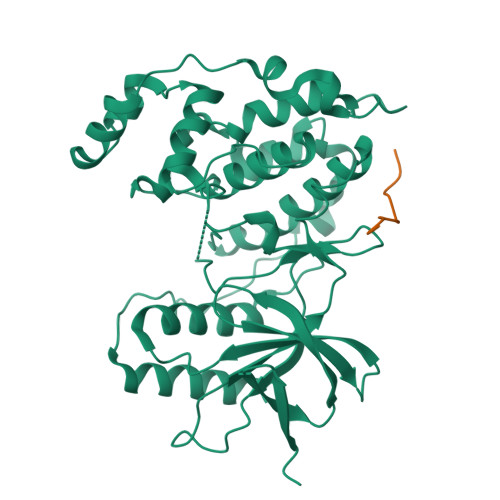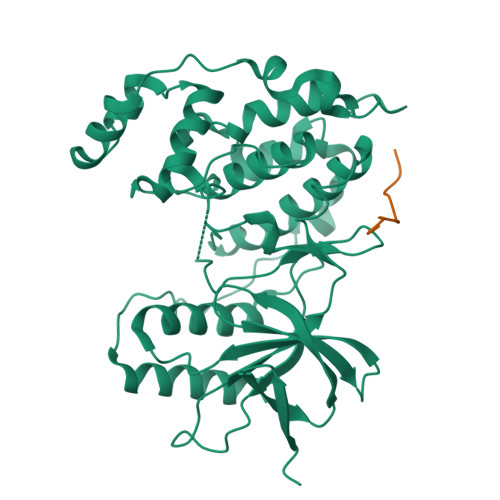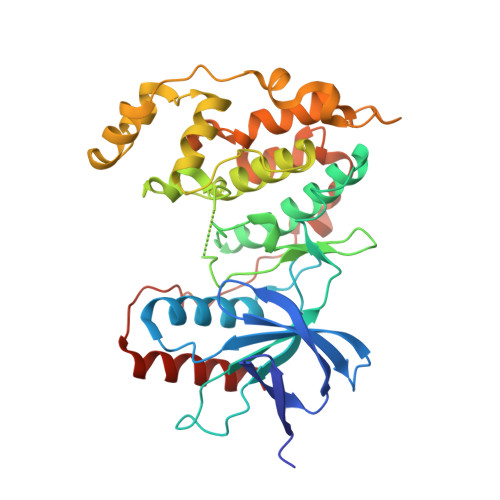Seven cysteine-deficient mutants depict the interplay between thermal and chemical stabilities of individual cysteine residues in mitogen-activated protein kinase c-Jun N-terminal kinase 1
Nakaniwa, T., Fukada, H., Inoue, T., Gouda, M., Nakai, R., Kirii, Y., Adachi, M., Tamada, T., Segawa, S., Kuroki, R., Tada, T., Kinoshita, T.(2012) Biochemistry 51: 8410-8421
- PubMed: 23020677
- DOI: https://doi.org/10.1021/bi300918w
- Primary Citation of Related Structures:
3VUD, 3VUG, 3VUH, 3VUI, 3VUK, 3VUL, 3VUM - PubMed Abstract:
Intracellular proteins can have free cysteines that may contribute to their structure, function, and stability; however, free cysteines can lead to chemical instabilities in solution because of oxidation-driven aggregation. The MAP kinase, c-Jun N-terminal kinase 1 (JNK1), possesses seven free cysteines and is an important drug target for autoimmune diseases, cancers, and apoptosis-related diseases. To characterize the role of cysteine residues in the structure, function, and stability of JNK1, we prepared and evaluated wild-type JNK1 and seven cysteine-deficient JNK1 proteins. The nonreduced sodium dodecyl sulfate-polyacrylamide gel electrophoresis experiments showed that the chemical stability of JNK1 increased as the number of cysteines decreased. The contribution of each cysteine residue to biological function and thermal stability was highly susceptible to the environment surrounding the particular cysteine mutation. The mutations of solvent-exposed cysteine to serine did not influence biological function and increased the thermal stability. The mutation of the accessible cysteine involved in the hydrophobic pocket did not affect biological function, although a moderate thermal destabilization was observed. Cysteines in the loosely assembled hydrophobic environment moderately contributed to thermal stability, and the mutations of these cysteines had a negligible effect on enzyme activity. The other cysteines are involved in the tightly filled hydrophobic core, and mutation of these residues was found to correlate with thermal stability and enzyme activity. These findings about the role of cysteine residues should allow us to obtain a stable JNK1 and thus promote the discovery of potent JNK1 inhibitors.
Organizational Affiliation:
Department of Biological Sciences, Graduate School of Science, Osaka University, Toyonaka, Japan.

















